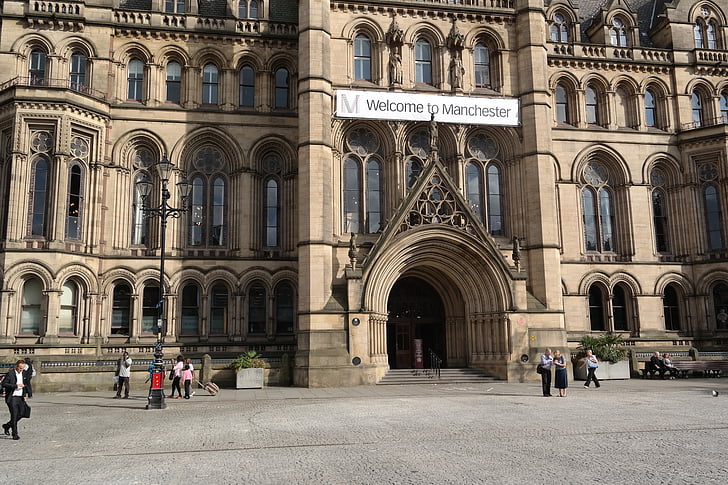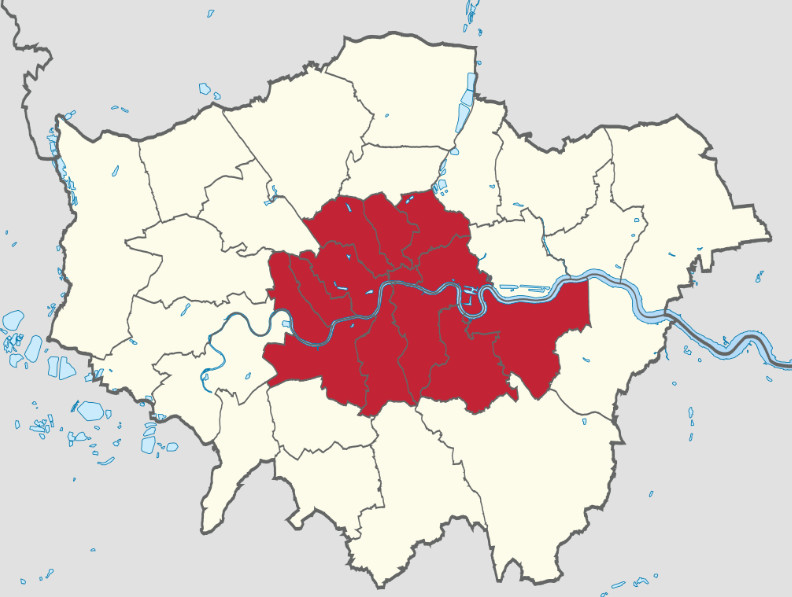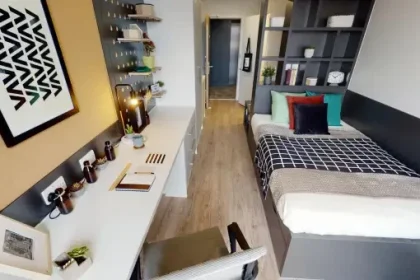London, acknowledged as a big city, is so vast for many students and visitors to find a property to rent in London.
Which districts are safe? Which areas are exorbitantly priced? Where to look for a flat? Should you rent on your own or via an agent? How do deal with a rogue landlord? Only by taking all the questions above into account thoroughly, you can settle yourself in a pleasant and comfortable house.
While for those who are fresh of the boat in the society , it can be overwhelming to walk through so many details. Here, we have gathered all the information you need from the very beginning about London house renting.
Preparations to Rent in London

1. Understand London's Districts & Zones
The London Zones (e.g., Zone 1, Zone 2) people refer to in daily life are based on the underground zonal billing system, only less organized than the latter one.
London Zone 1 encompasses many areas in the City of London and Inner London, essentially constituting the heart of London. You can witness so many significant places like the Houses of Parliament (the political center), tourism highlights including Buckingham Palace, Big Ben, And also the London Eye, the commercial centers like Oxford Street and Bond Street, together with London’s financial and tech hubs, and much more.
London Zone 2 is city that has been thriving rapidly in recent years , hosting the new boom in Canary Wharf of the financial city, affluent West London areas like Fulham, and residential ares like Canada Water. As We move back further , the areas generally get farther from the city center. But still, we’re well connected to the centre via advanced traffic systems like subways, buses, and railways.
2. Check the safety factor
When traveling or working in a foreign city, safety is always the priority. As one of the cities with top crime rates in the UK, London is where you need to attach great significance to choose an accommodation that is not among those risky areas. To check the crime rates in your neighborhood, you can simply enter your postcode on the City of London Police website. However, this website only displays crime rates without any details on specific criminal events.
3. Estimate your housing budget
When you are renting in London, the distance between the house and your school or workplace also matters during your consideration. Typically, schools and companies are located in Zone 1 and Zone 2 of London. Accordingly, It costs noticeably more to pay the rent in the mentioned areas than in other places.
If you are on a tight budget, you can make a wise choice if you skip the expensive and well-known areas in London (e.g., SW1X, W1J, and EC2R). Meanwhile, it will help you access the cheaper housing to lengthen the commuting time and lower your expectations for convenient living a bit.
House hunting: Rent in London
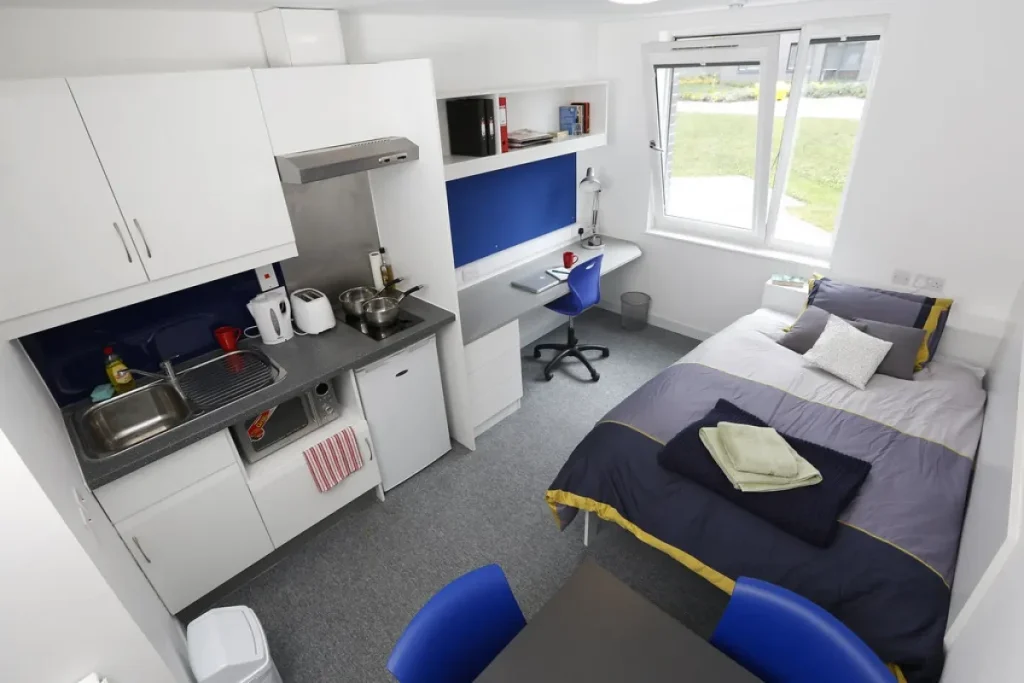
All Methods to Find Apartments & Hotels in London
Having understood London’s rental background, we can move to the next step to seek and visit the house for view. In general, there are three ways to go about house hunting:
2. Consult with a UK housing agent.( But keep in mind all the details and steps for negotiating during your London renting process)
3. Search for direct rentals or house subletting on platforms and other forums online(although this carries higher risk).
Tips when viewing the house
Regardless of the method chosen, it’s essential to arrange the London apartment viewings with the landlord or agent, We also suggest you view the hostel with a friend.
During the property checking, don’t just focus on the interiors. As the following points are still important to consider your accommodation details:
- Check the surrounding environment before arranging a viewing. This includes the distance to nearby subway and bus stations.
You also need to check the convenience stores, large supermarkets, restaurants, gyms or other essential facilities in the neighbourhood. These factors directly impact your quality of life.
2. Confirm the security of house facilities, including doors and windows, test smoke detectors and fire alarms.
In the meantime, inspect the appliances in the house for signs of ageing. Inquire about the maintenance of internal equipment and ensure it’s clearly stated in the contract.
3. If you plan to share the long-term or short-term accommodation in London, feel free to ask your roommates about how long the current housemates have been living there (indicating if the house is suitable or not for a long-term stay).
Note: Besides, make sure you are informed of the bill payment. The bill covers water, heating, electricity, gas, and Council Tax (which can be free if you are a full-time student).
Booking a House to Rent in London
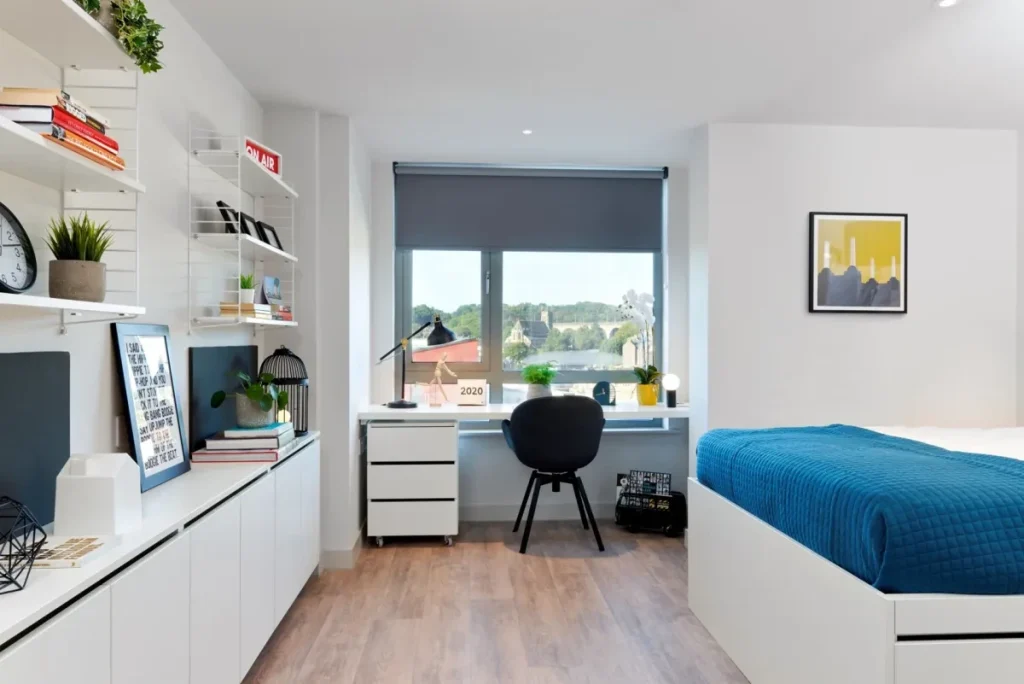
1. Pay a deposit
If satisfied with the property, you can consider paying the deposit for rental. If you’re renting through an agent, they will typically ask for a Holding Fee, the money you need to pay to get the house off the market for reservation once you take it as your pick. People pay this holding fee to prevent others from taking it normally.
This charge is normal and as of 2019, regulations stipulate that the amount cannot exceed one week’s rent.
Nevertheless, if you have paid the Holding Fee but then decide not to rent the property, the fee is non-refundable.
2. Sign the contract
Now we are moving to the most critical part during the whole renting process – contract. You need to read the house rental contract with full attention.
And it’s worth noticing that any additional conditions introduced during the viewing must be written and added to the contract. Then, both parties sign the contract for it to be legally binding.
Before paying the deposit, please pay attention to the following once you receive the contract.
- Ensure that the rental agreement (whether with an agency or private landlord) is provided by a reputable law firm.
- Further check the firm’s name or stamp. You need to note that contracts downloaded from the Internet or casually written by landlords may not be legally valid. If your rights are violated, these contracts may not offer adequate protection.
- Pay attention to the duration of the tenancy in the rental agreement: How long you can stay, and when is the notice needed before your moving out. Particularly focus on the Breaking Clause, specifying when you can leave.
- Get clear about the rent structure, payment method and any additional payment. Remember to specify each item and its cost.
- Please note that starting from June 1, 2019 (September 1 for Wales), the UK government has implemented new rental regulations (Tenant Fee Act 2019).
Types of Legal Charges for Renting in UK
Only seven types of charges are legal: rent, deposit (generally not exceeding five weeks’ rent), holding deposit (generally not exceeding one week’s rent), fees for amending the contract (not exceeding £50), fees for early termination of the contract, bill payments (utilities, TV license, Council Tax), and compensation for damages caused by the tenant (e.g., lost keys).
- Keep an eye on the rent payment for your London apartment to rent, especially for international students.
Tips: As for the rent, although the government hasn’t specified that overseas students have to pay six months in advance when renting, it seems to be the practice if you don’t have a guarantor.
However, after paying these six months, you can request to pay on a monthly basis. You may encounter occasions sometimes where the agents ask you to pay another six months in the fourth month.
Moving in
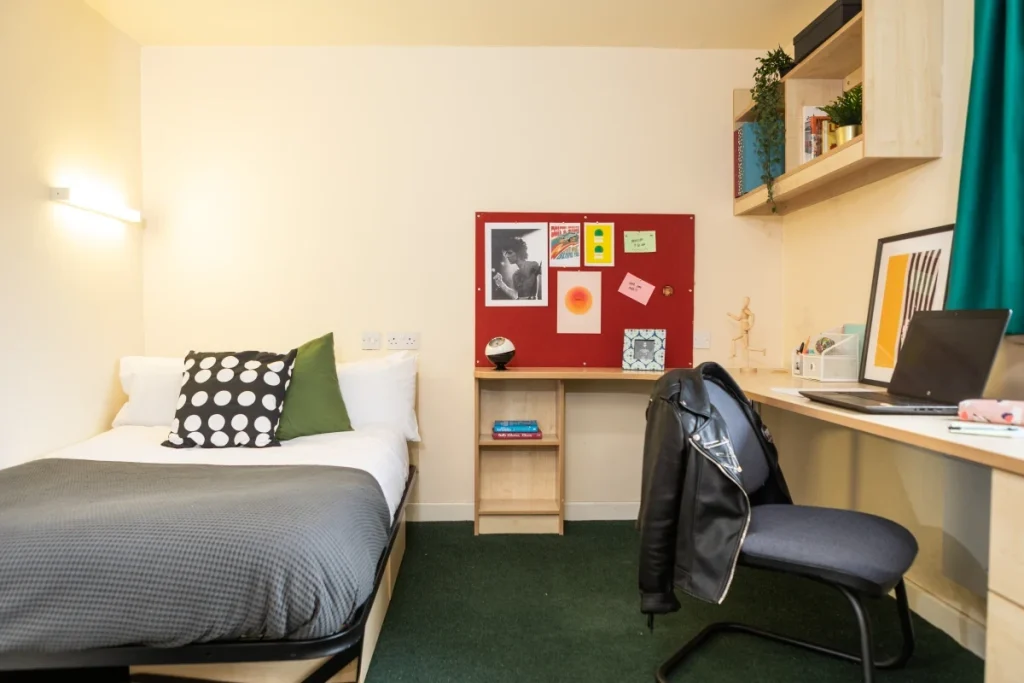
Inventory Check
After getting all preparations done, you can get the house key and move into your new home!
On the first day before you move in, the agent usually conducts an Inventory Check, examining the condition of the house and taking many photos. This is to protect your rights and prevent some landlords from attributing pre-existing damages to you.
Generally, The Inventory Check cost is covered by the landlord. Be vigilant when reading the contract, if they attempt to charge you for this, you can refuse to pay!
Moving out

A Move-out Clean( For Private Accommodation London)
When you decide to move out, landlords generally expect everything to be in the same condition as when you moved in.
Hence, cleaning the house becomes crucial. You can consider hiring a cleaning company for a “Move-Out Clean”. It can save you a lot of efforts and ensure you meet the required standards.
Check All Your Bill Details
Additionally, it’s important to handle your water, electricity, and gas bills during your rental period. On the day you move out, you also have to conduct an Inventory Check and remember to note down the readings of the water, electricity, and gas meters.
Transfer this data to the respective utility providers and request them to bill you according to the readings taken on that day. If there are any arrears, it may delay the return of your deposit.
Problems you may encounter: Final Thoughts
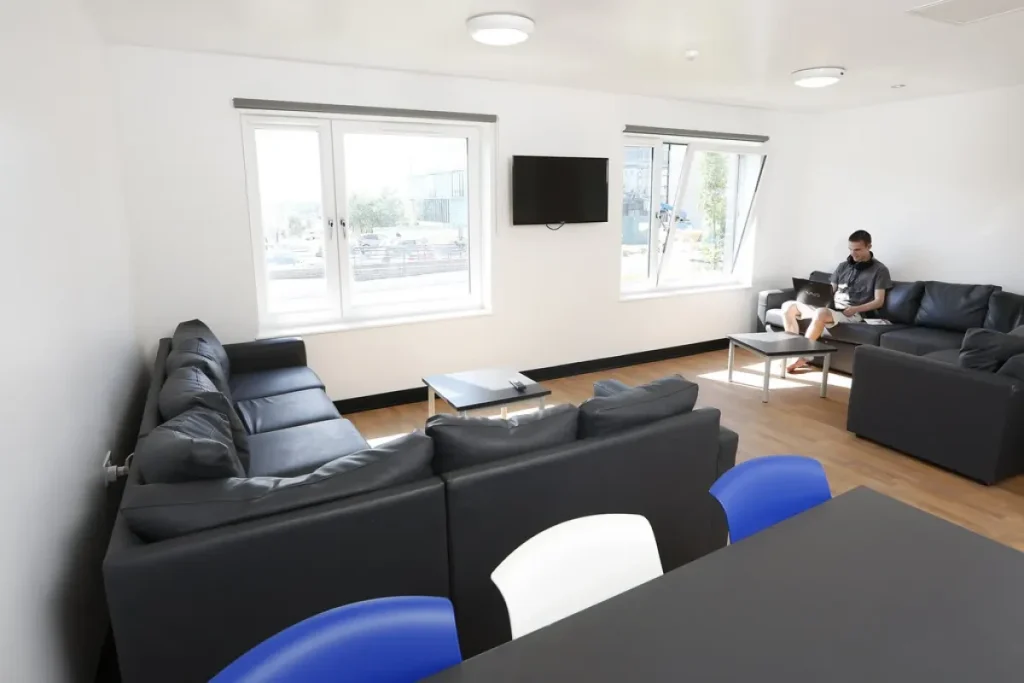
During the rental , you may come across various challenges.
For example, dealing with middleman landlord (who rent a house set from the landlord and sublet houses to others), having peculiar roommates, etc. You need to reconsider all these crucial factors and elements that may affect your quality of life.
Although navigating the rental scene in the UK can be tricky, if you follow the steps meticulously to stay away from all traps and risks.
We hope you can get a satisfactory home, honest landlords, and agents, and enjoy a warm and comfortable stay in the UK.
Additionally, for those who have found their dream home in London and settle down in London, there are additional life tips to benefit your living in London.
Discover UK Attractions: Most Beloved by Locals
Hey there, fellow adventurers for UK attractions! If you're planning a trip…
London Airports Ultimate Guide
Still in search of an easy, trustworthy, and comprehensive guide to navigate…
FAQs of Room Renting in London
Q1: What is the average cost of renting a room in London?
The average cost of renting a room in London varies greatly depending on the area. In general, you can expect to pay anywhere from £500 to £800 per month for a room in a shared house or flat, with prices being higher in central zones and lower in outer zones.
Q2: Are utilities typically included in the rent in London?
In London, it’s common for rental prices to exclude utilities like gas, electricity, water, and internet. However, some landlords offer ‘bills included’ arrangements, particularly for London student accommodations or shared houses, where a fixed amount covers both rent and utilities.
Q3: What is the process for securing a rental property in London?
To secure a rental property in London, you generally need to view the property first, either in person or virtually. If interested, you’ll submit a rental application, provide references, and undergo a credit check. Upon approval, you’ll sign a tenancy agreement and pay a deposit (usually 4-6 weeks’ rent) along with the first month’s rent in advance.


